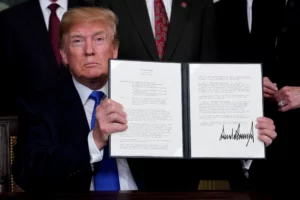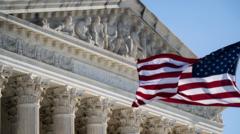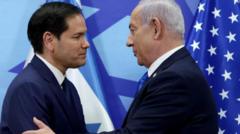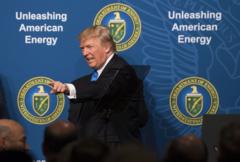As President Trump unveils plans for targeted tariffs, the move is set to ignite global trade discussions, analyzing potential economic impacts amidst concerns from various sectors.
Trump's New Tariff Strategy Targets Unfair Trade Practices
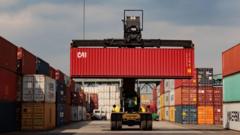
Trump's New Tariff Strategy Targets Unfair Trade Practices
US President Donald Trump has initiated a plan to impose custom tariffs on countries with trade policies he deems unfair, aiming to enhance US manufacturing and protect domestic industries.
The Trump administration is taking decisive steps towards establishing tariffs geared towards addressing perceived imbalances in international trade. Earlier this week, Trump signed a memo mandating staff to devise special tariffs for specific countries, considering their existing tariffs, exchange rates, and trade practices. The White House particularly highlighted the European Union and other nations like India, Vietnam, and Thailand as targets for these new tariffs.
In response to a complex global trade environment, Trump claims his strategy, referred to as "reciprocal tariffs," is aimed at leveling the playing field to promote US manufacturing. He indicated that no tariffs would be applied to products built within the United States, a move he claims is simply fair given the disparity in existing tariffs.
As Trump's plans unfold, he is set to meet with Indian Prime Minister Narendra Modi, whose recent moves to cut tariffs on certain products shall be significant in these discussions. Meanwhile, the European Union remains committed to fostering close partnerships with the US, expressing readiness to protect its interests amid the potential changes.
By definition, tariffs act as a tax on imports designed to protect local industries from foreign competition. Historically, the US has maintained lower average tariffs compared to other regions, with a notable average of 3.4% versus 5% in Europe according to the WTO. The administration's analysis prior to the memo highlighted inconsistencies in tariffs facing US exports, such as the 10% tariffs on American vehicles in Europe versus a 2.5% charge on imports in the US, as well as Brazil's substantial 18% tax on imported ethanol versus the meager 2.5% for US-produced ethanol.
While the move illustrates a clear pivot towards protectionist policies, it raises questions regarding the broader impacts on the economy and potential retaliatory actions from other nations. Notably, some experts have warned that escalating tariff measures may exacerbate trade tensions, with potential consequences for US businesses and consumers.
Polls indicate a general skepticism among the US public regarding the effectiveness of tariffs, with a mere 24% expressing belief in their positive impact on the economy—concerns that could complicate Trump's narrative around fairness in trade.
Trump remains steadfast in his belief that his tariff strategy will bolster American jobs, even as the potential for higher prices stirs apprehension among consumers. The administration's ongoing evaluation of global trade dynamics will undoubtedly shape the negotiations and relationships with key international partners in the coming months.
In response to a complex global trade environment, Trump claims his strategy, referred to as "reciprocal tariffs," is aimed at leveling the playing field to promote US manufacturing. He indicated that no tariffs would be applied to products built within the United States, a move he claims is simply fair given the disparity in existing tariffs.
As Trump's plans unfold, he is set to meet with Indian Prime Minister Narendra Modi, whose recent moves to cut tariffs on certain products shall be significant in these discussions. Meanwhile, the European Union remains committed to fostering close partnerships with the US, expressing readiness to protect its interests amid the potential changes.
By definition, tariffs act as a tax on imports designed to protect local industries from foreign competition. Historically, the US has maintained lower average tariffs compared to other regions, with a notable average of 3.4% versus 5% in Europe according to the WTO. The administration's analysis prior to the memo highlighted inconsistencies in tariffs facing US exports, such as the 10% tariffs on American vehicles in Europe versus a 2.5% charge on imports in the US, as well as Brazil's substantial 18% tax on imported ethanol versus the meager 2.5% for US-produced ethanol.
While the move illustrates a clear pivot towards protectionist policies, it raises questions regarding the broader impacts on the economy and potential retaliatory actions from other nations. Notably, some experts have warned that escalating tariff measures may exacerbate trade tensions, with potential consequences for US businesses and consumers.
Polls indicate a general skepticism among the US public regarding the effectiveness of tariffs, with a mere 24% expressing belief in their positive impact on the economy—concerns that could complicate Trump's narrative around fairness in trade.
Trump remains steadfast in his belief that his tariff strategy will bolster American jobs, even as the potential for higher prices stirs apprehension among consumers. The administration's ongoing evaluation of global trade dynamics will undoubtedly shape the negotiations and relationships with key international partners in the coming months.












